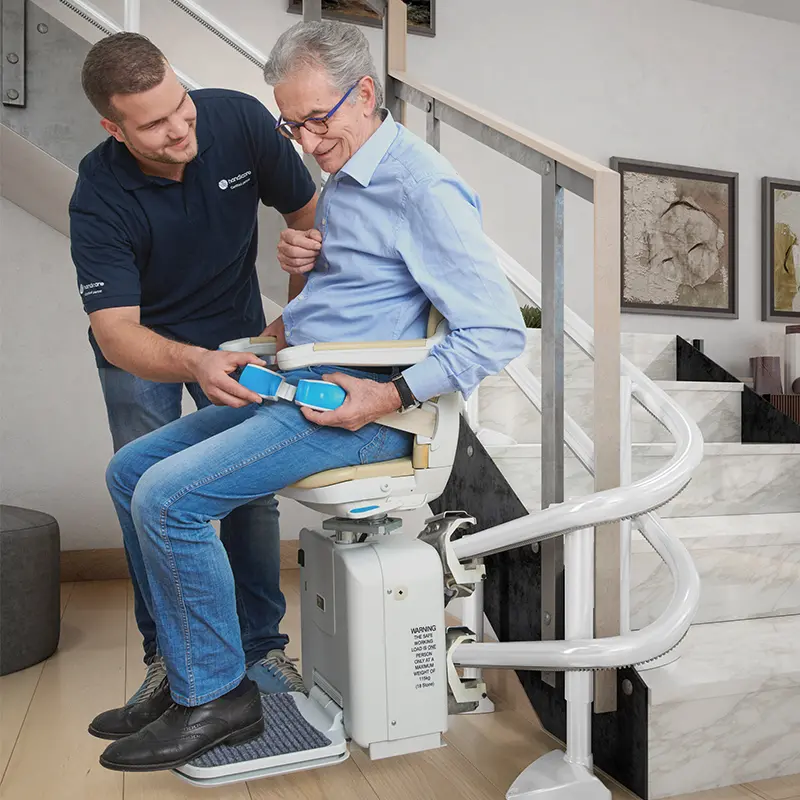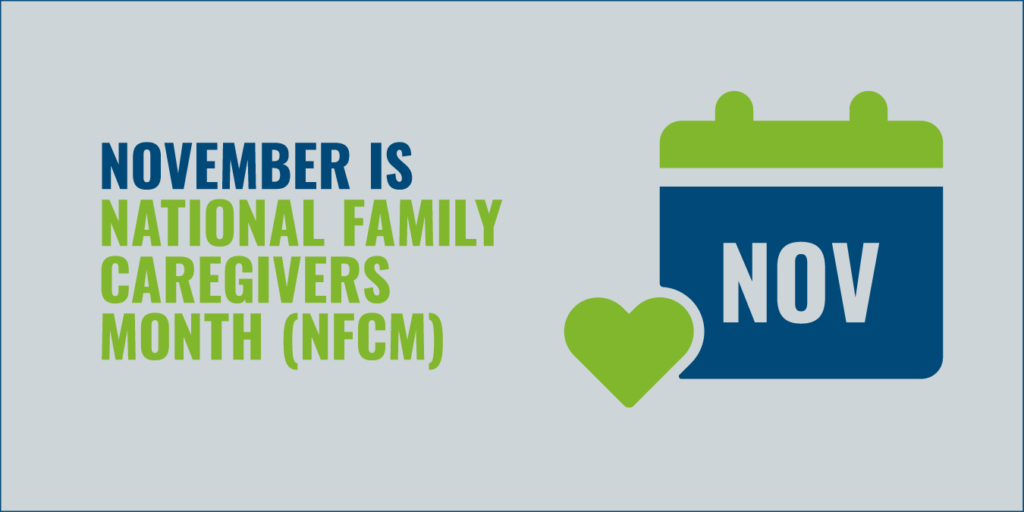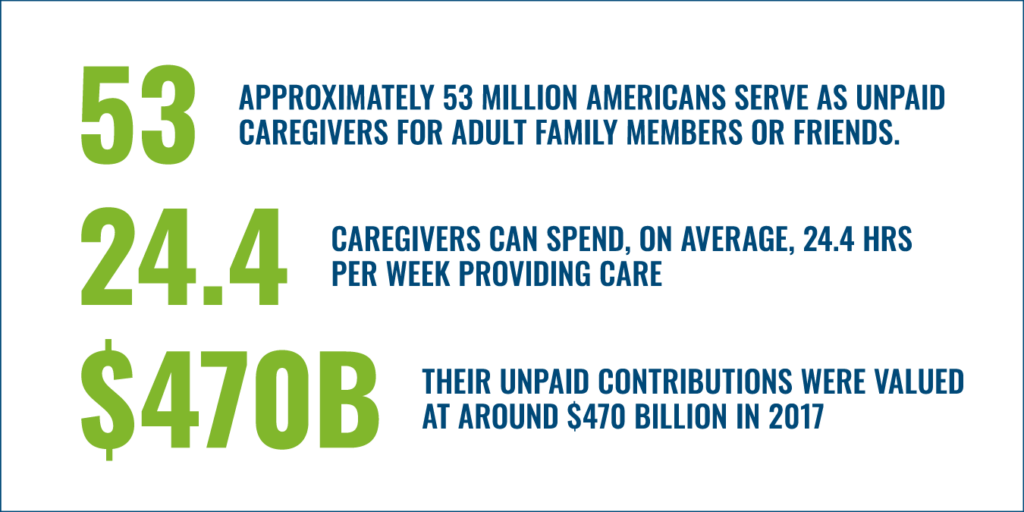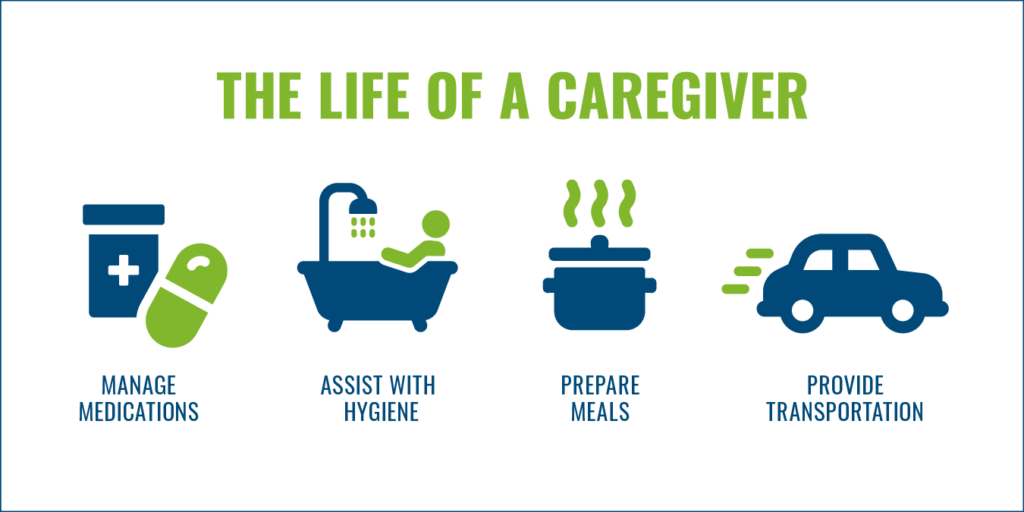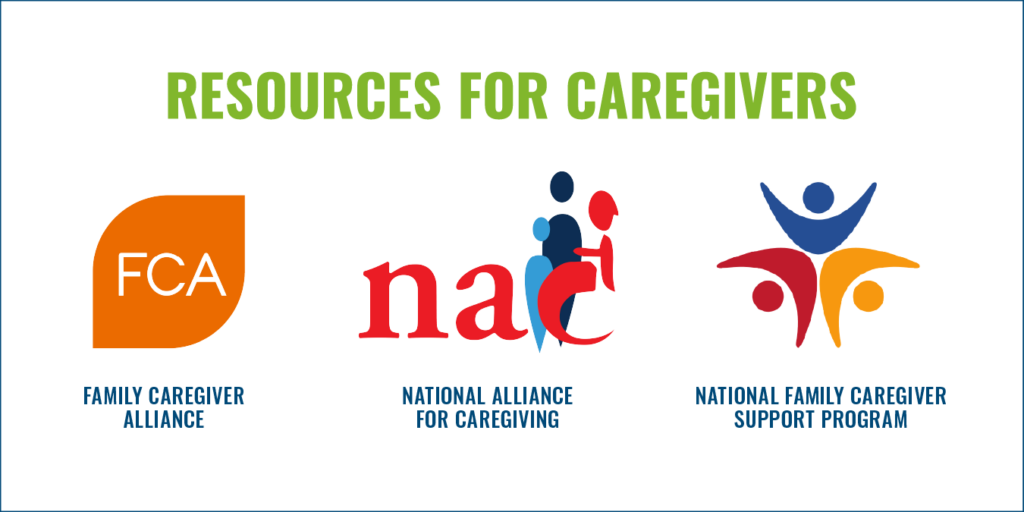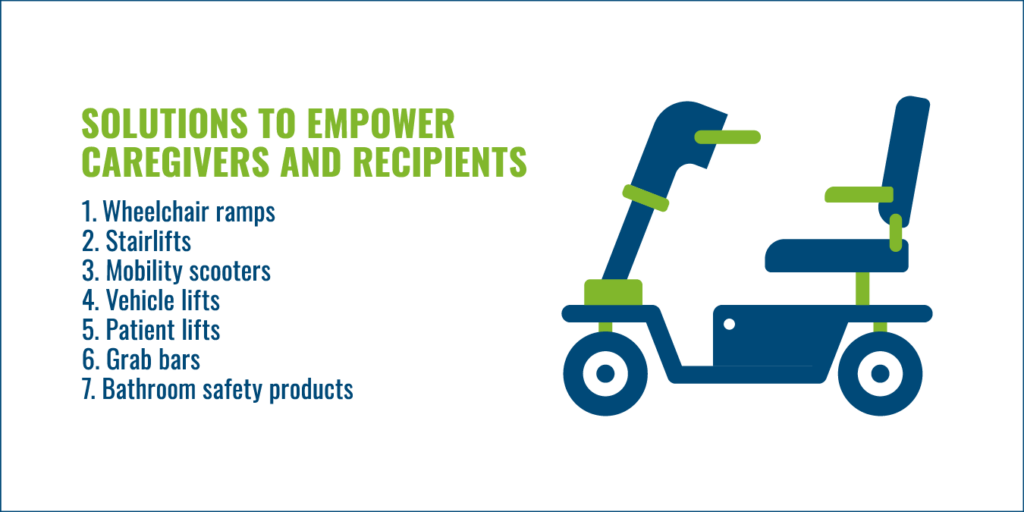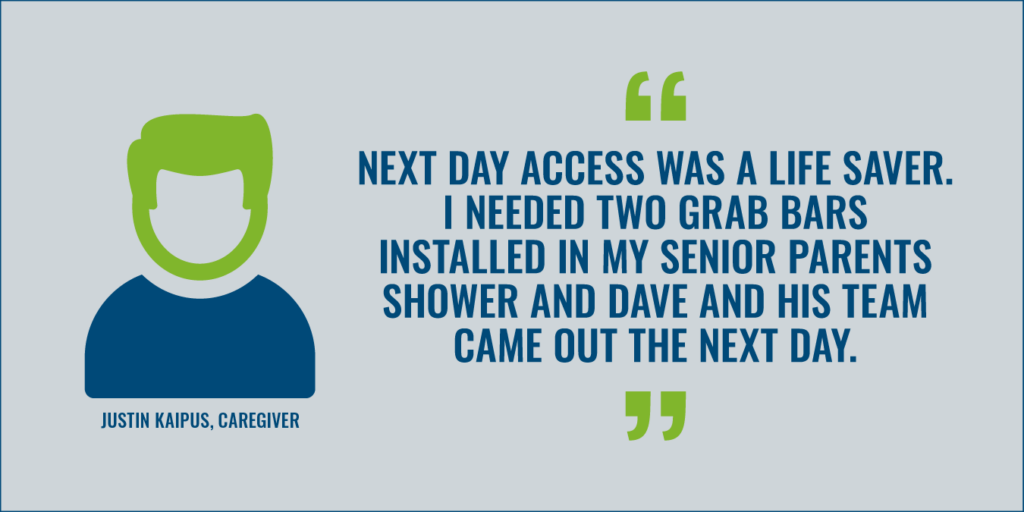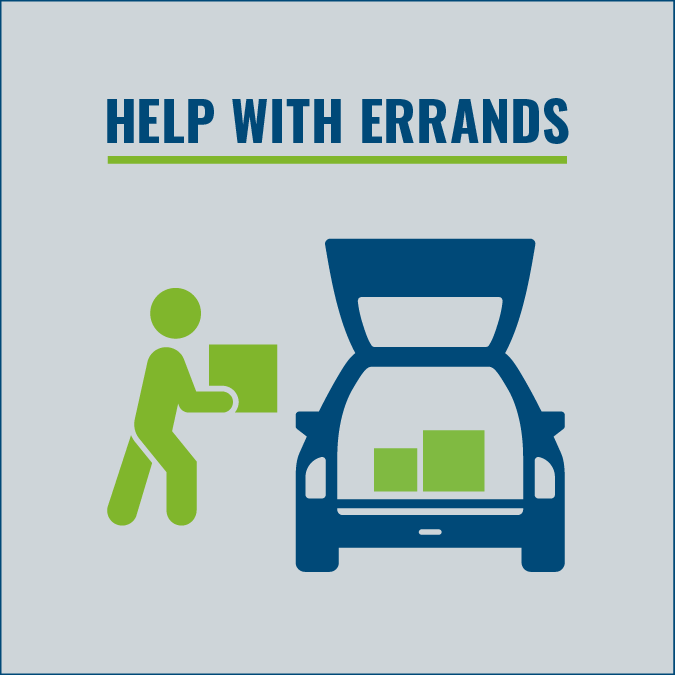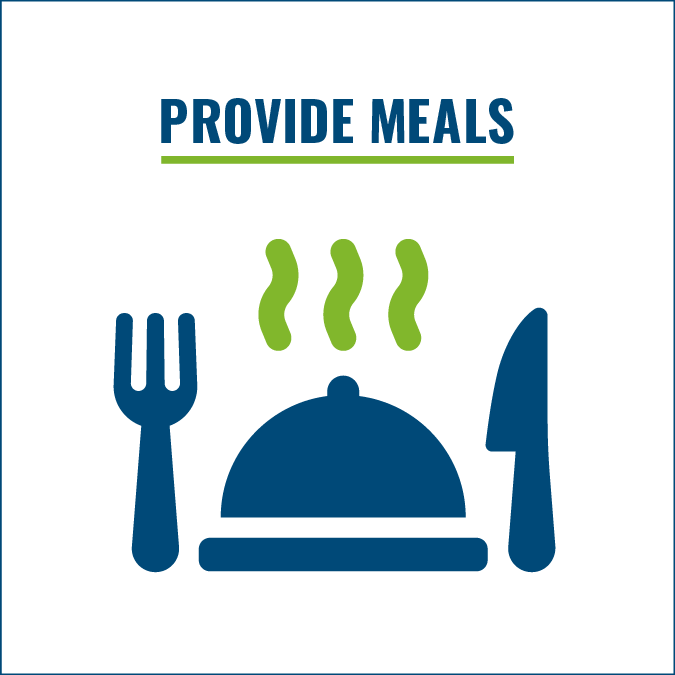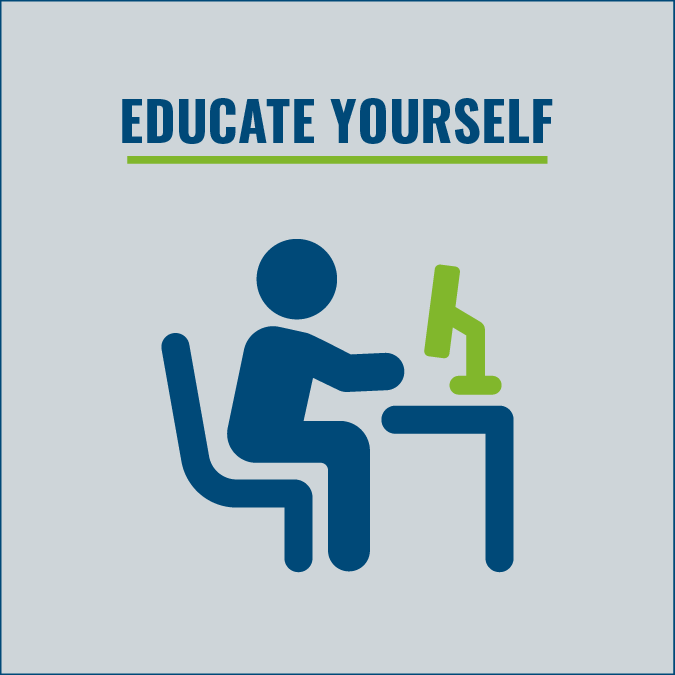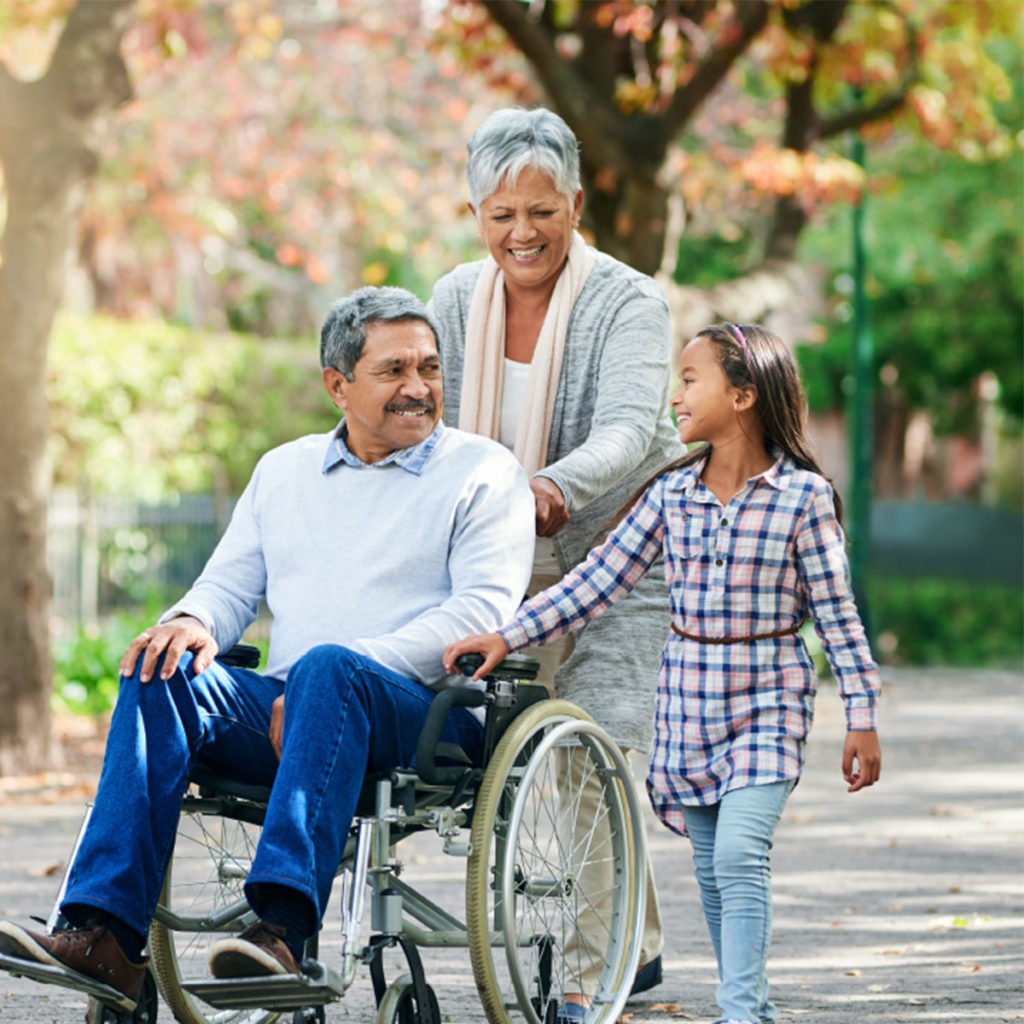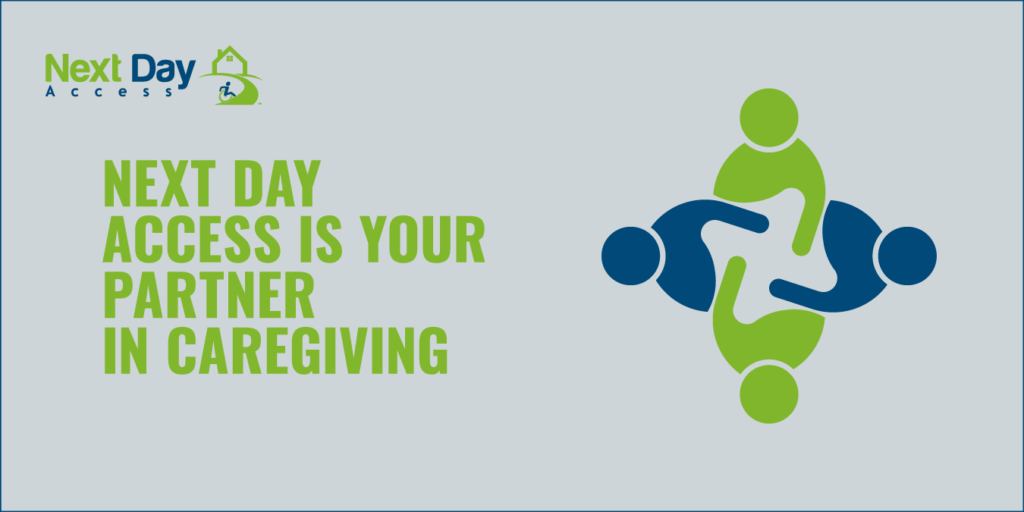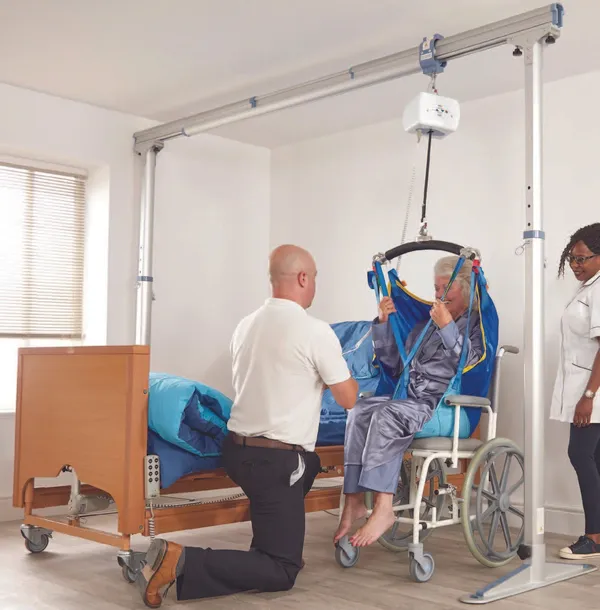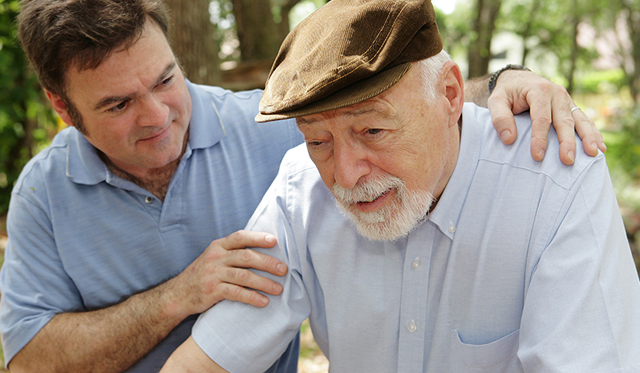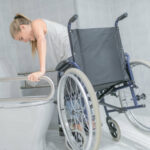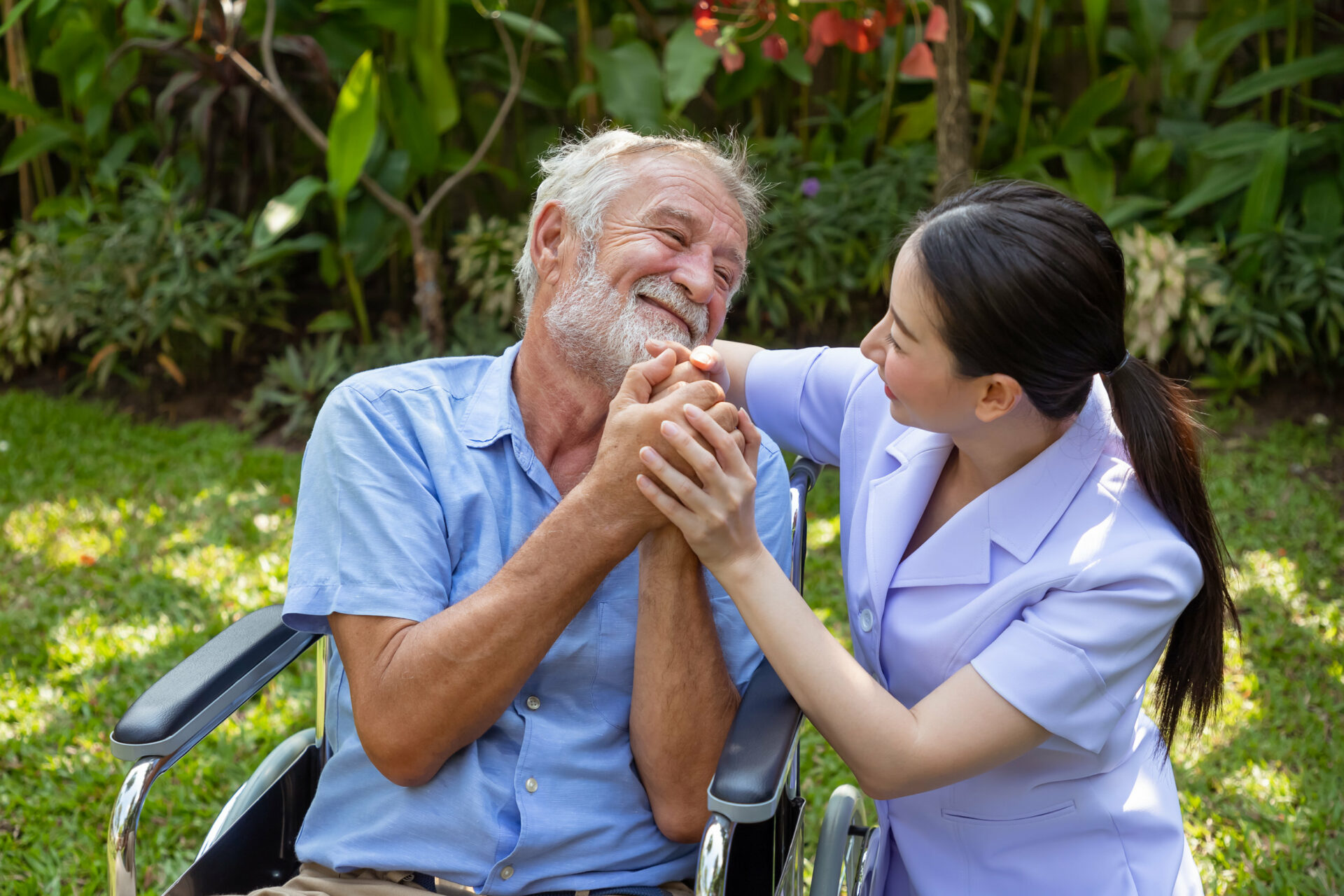
Every third Friday in February, we celebrate National Caregivers Day, honoring caregivers’ unwavering dedication and compassion. This year, on février 16, 2024, we pause to recognize the vital role these selfless individuals play in the lives of those facing illness, disability, or aging and mobility challenges. Caregivers offer not only practical assistance with daily tasks but also emotional support, greatly impacting the well-being and quality of life of those they care for.
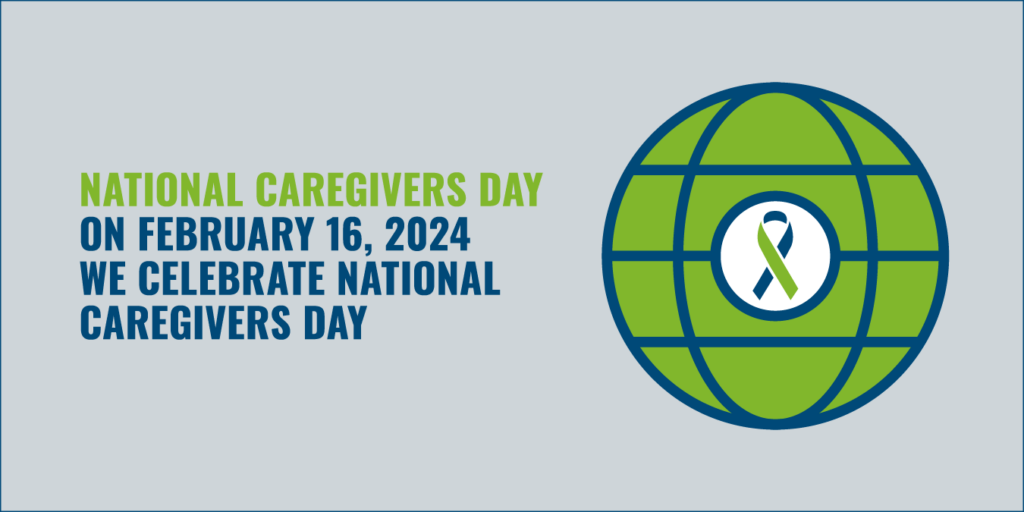
Caregiving, often undertaken with little recognition, demands significant physical and emotional commitment. The National Alliance for Caregiving and AARP report that approximately 53 million Americans serve as caregivers for family members or friends, forming the backbone of home-based care in the United States and enabling many to remain in familiar environments despite health challenges.
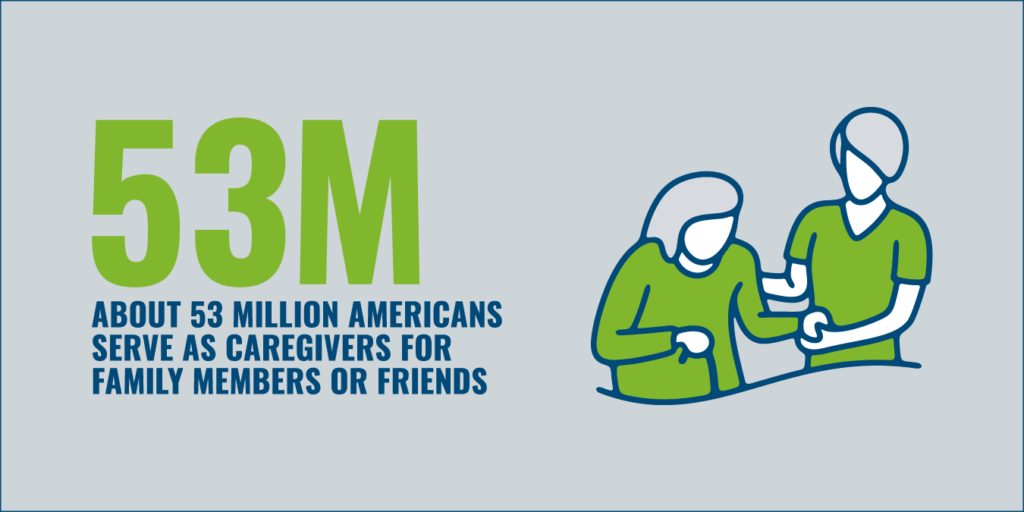
As National Caregivers Day approaches, it’s a fitting time to reflect on caregivers’ invaluable contributions and the importance of supporting them.
The Growing Role of Caregivers in Society

The demand for caregivers has seen a significant rise over the last ten years, fueled by demographic shifts such as an increasingly aging population and a rise in chronic health conditions. According to projections from the Centers for Disease Control and Prevention (CDC), the population of adults aged 65 and older is expected to nearly double, from 52 million in 2018 to 95 million by 2060. This dramatic increase highlights the growing need for caregivers, as well as for accessible home environments and assistive technologies that can simplify caregiving tasks.
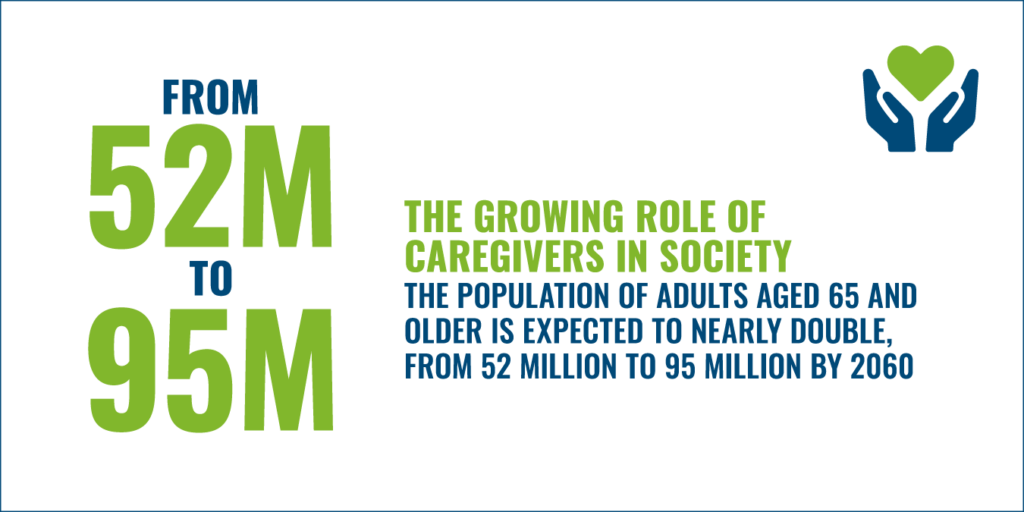
The diversity within the caregiving landscape further emphasizes the importance of creating home settings that are accessible and equipped with the necessary assistive devices to aid in caregiving. It is crucial to recognize and meet the needs of caregivers, ensuring they have the support and resources needed to effectively fulfill their vital roles.
Challenges Faced by Caregivers
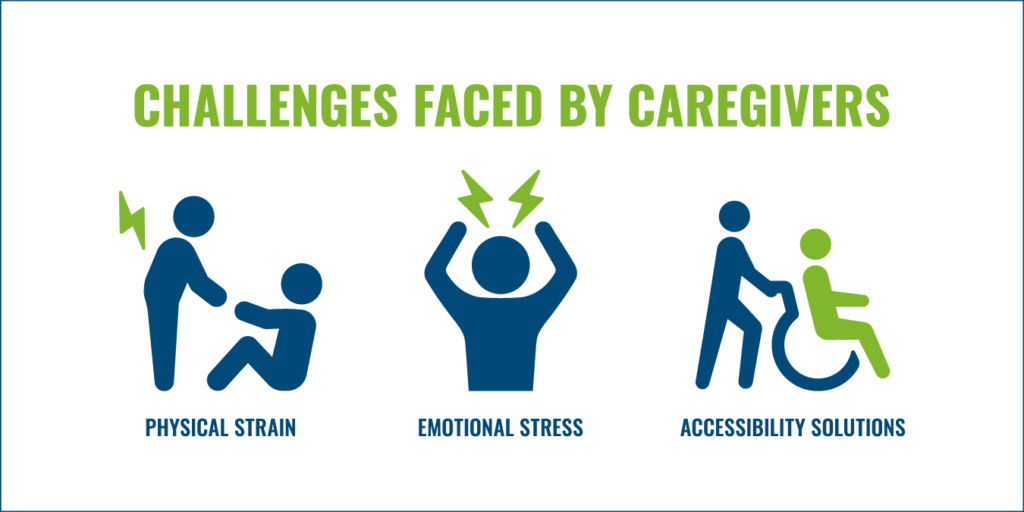
Taking care of individuals with mobility challenges, disabilities, or age-related issues presents a complex array of challenges for caregivers. It is vital to provide caregivers with supportive resources and solutions to these challenges, as they can significantly affect their well-being.
Physical Strain
A primary challenge for caregivers is the physical strain of caregiving tasks, such as lifting, transferring individuals, assisting with mobility, and managing household tasks. These activities can lead to injuries, including back pain, a common problem among caregivers.
A study by the Bureau of Labor Statistics shows that healthcare occupations, including caregiving, experience higher rates of musculoskeletal disorders than other professions. This type of data further illustrates the risks caregivers face and the critical need for ergonomic tools and accessible solutions to mitigate these challenges.
Emotional Stress
Caregiving’s emotional toll cannot be overlooked. The responsibility of caring for a loved one or client often leads to stress, anxiety, and depression, all symptoms of caregiver burnout. Balancing caregiving responsibilities with personal and professional lives compounds these emotional struggles.
The National Alliance for Caregiving and AARP reveals that nearly 40% of caregivers report high emotional stress, underscoring the essential need for emotional support and resources to help caregivers manage stress and protect their mental health. Caregivers can greatly benefit from mental health resources such as counseling and support groups of like-minded individuals.
Need for Suitable Accessibility Solutions
Homes and facilities’ design and accessibility significantly impact caregiving challenges. A lack of accessibility features, such as ramps, grab bars in showers, walk-in tubs, and stair lifts, can add to the difficulty of caregiving tasks and increase the risk of injury for both caregivers and those they assist. Moreover, insufficient accessibility solutions may restrict the independence of individuals with mobility challenges, further burdening caregivers.
Addressing these challenges is crucial, and creating a safe, accessible environment is paramount. Solutions like wheelchair ramps, lift chair recliners, and home elevators significantly alleviate caregivers’ physical strain. They also enhance the safety and mobility of those in their care. These improvements not only elevate the quality of life for individuals with mobility challenges but also bolster the health and well-being of caregivers by simplifying caregiving tasks.
Key Accessibility Solutions to Help Caregivers
Supporting caregivers in their crucial roles requires more than just recognition on National Caregivers Day; it necessitates tangible solutions that address the physical and emotional challenges they face daily. Enhancing accessibility and mobility for individuals with disabilities or mobility issues plays a pivotal role in this support system.
By focusing on creating safer, more accessible environments, caregivers can provide better care with reduced risk to themselves and those they assist. This approach not only improves the quality of life for individuals with mobility challenges but also significantly eases the caregiving burden. Below are several of the most popular accessibility solutions that can assist caregivers in their role.
- Ramps and Wheelchair Ramps: Various types of Rampes, including portable, modular, and threshold ramps, are essential for safe access to homes and buildings. These tools enable caregivers to transport individuals in wheelchairs or mobility scooters easily, minimizing injury and physical strain risk.
- Lifts, Stair Lifts, and Home Elevators: For homes or facilities with multiple levels, Monte-escaliers and home elevators are invaluable. They ensure that individuals can safely access different floors without the physical exertion and risk associated with navigating stairs, making the caregiver’s job safer and less physically demanding.
- Mobility Scooters and Wheelchair Rentals: Flexibility in mobility solutions is crucial for managing various mobility issues. Utilizing mobility scooters and wheelchair rentals provides short-term mobility solutions, allowing caregivers to address immediate needs or evaluate long-term mobility aid options.
- Walk-In Tubs: Addressing the high risk of falls and injuries in bathrooms, Baignoires à l'italienne allow individuals to maintain hygiene independently in a safe environment. This significantly reduces the caregiving burden and enhances the dignity of those in care.
- Lift Chairs and Lift Chair Recliners: These chairs help individuals move from seated to standing positions (and vice versa) effortlessly. For caregivers, such tools can significantly reduce the effort required to assist with standing or sitting, decreasing the risk of falls and injuries.
- Grab Bars for Showers: Installing Barres d'appui in showers and bathrooms provides crucial support for individuals, enabling safer navigation in these high-risk areas. For caregivers, these installations offer added assurance that slips and falls risk is minimized.
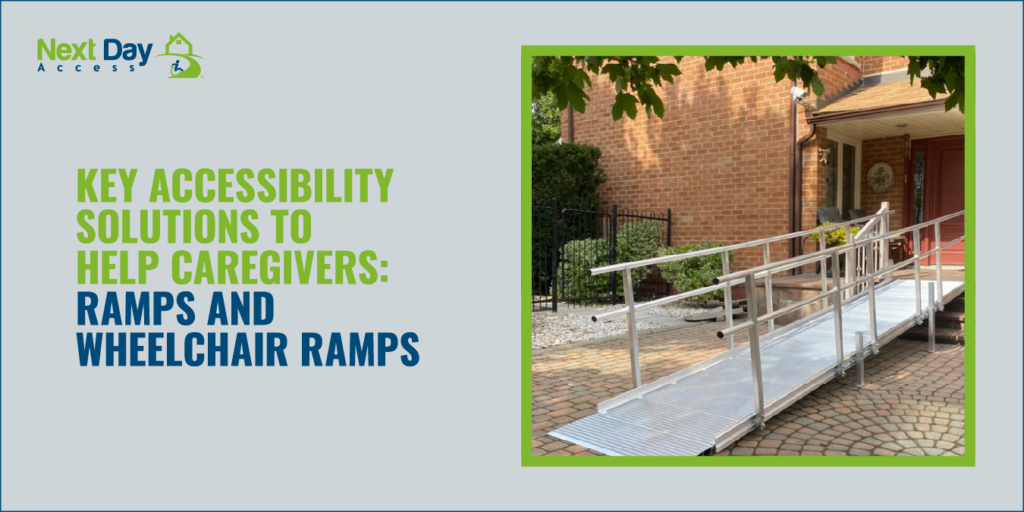
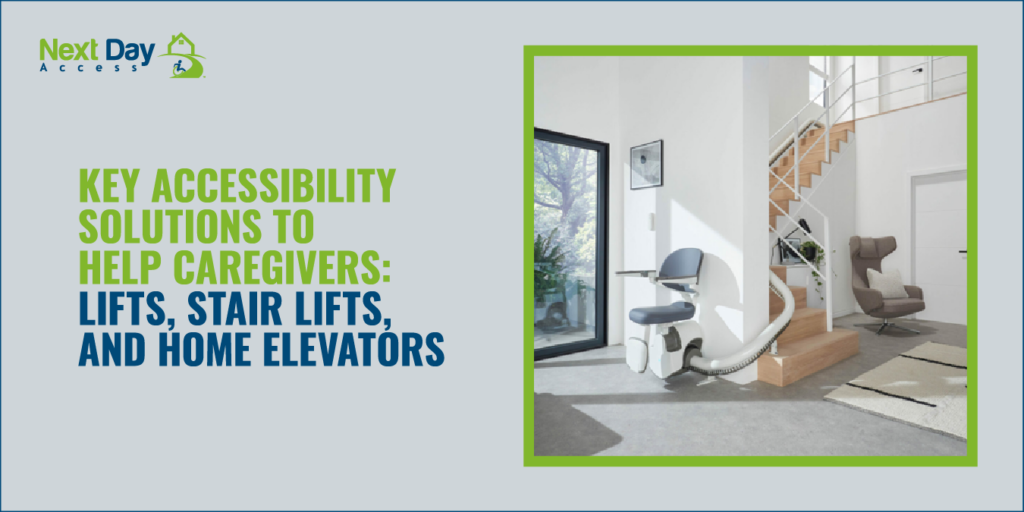
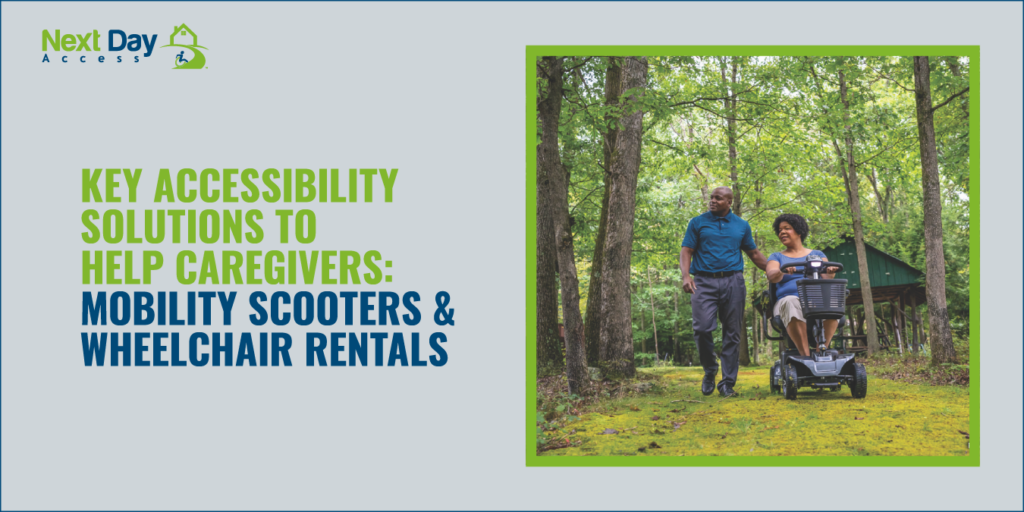
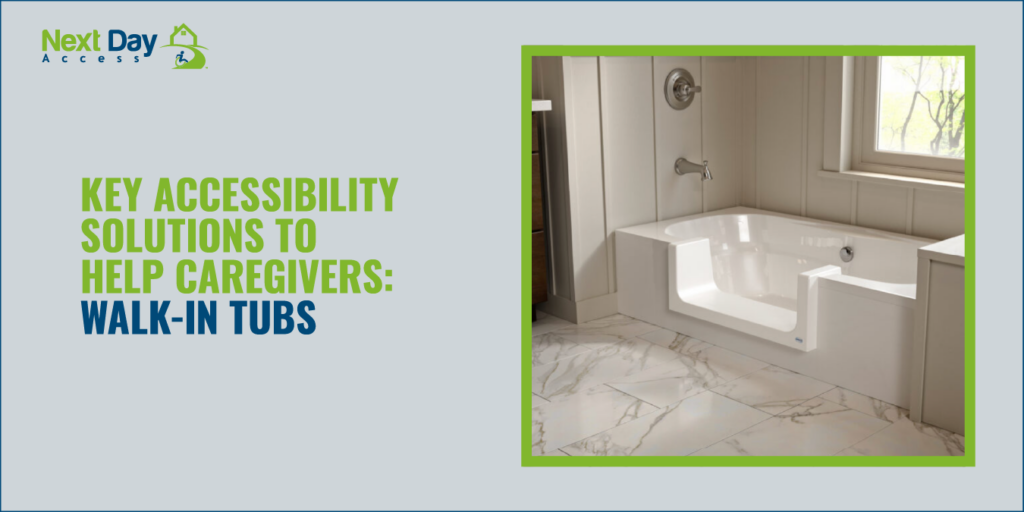
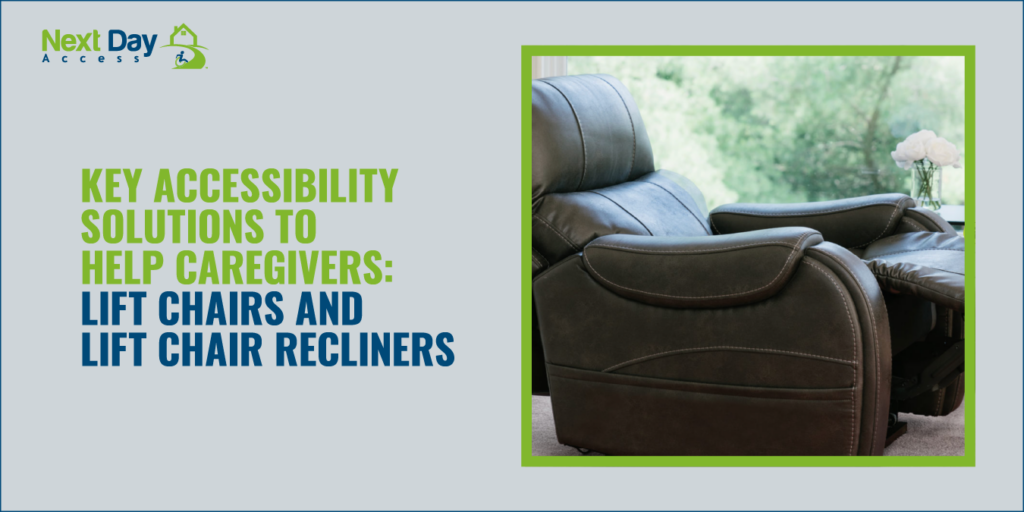
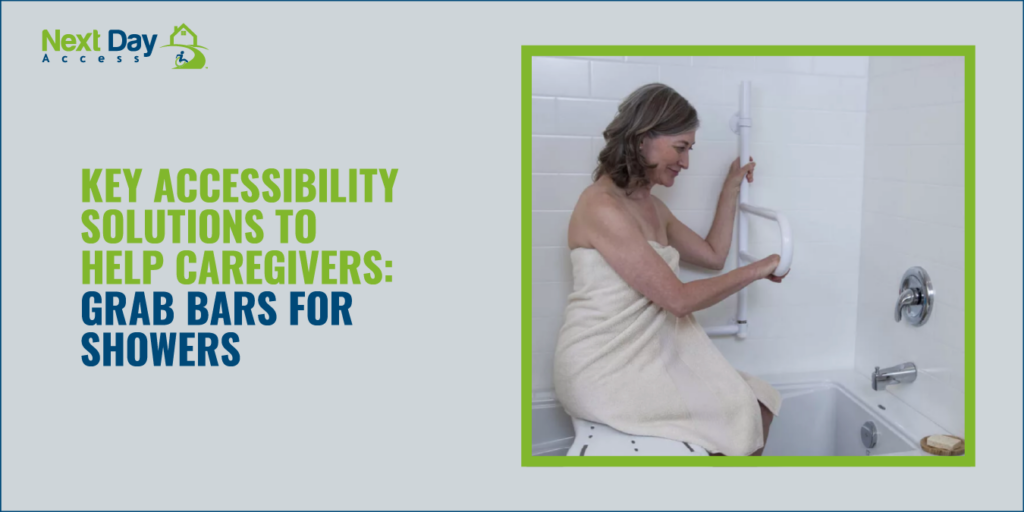
The Impact of Accessibility Solutions on Caregiving
By prioritizing accessibility improvements in living spaces, caregivers are equipped with the tools needed to offer safer, more effective care. This focus on accessibility ensures that the needs of both caregivers and those they support are met, leading to a higher quality of life and reduced strain for caregivers.
One example comes from our Next Day Access Boston location, where the team installed a chairlift for safely and efficiently helping elderly parents move from the first floor of their caregiver’s house down through the basement to ground level. The home, located at the end of an inclined driveway, did not offer a feasible option for installing a ramp to the front door, making a chairlift the optimal choice. The installation of this accessibility solution reduced the physical burden for the child but also restored independence for the parents. This story is echoed in countless testimonials, which highlights the profound impact accessibility solutions can have on improving the quality of life for individuals with mobility issues and their caregivers.
Physical Benefits
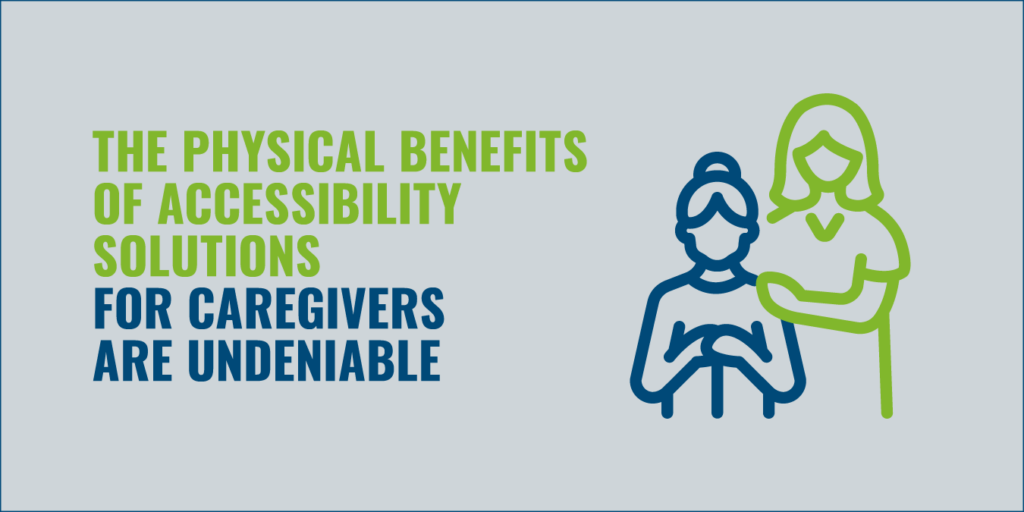
The physical benefits of accessibility solutions for caregivers are undeniable. By reducing the need for manual lifting and mobility assistance, these tools help prevent caregiver injuries, a common issue noted in the caregiving community. The Centers for Disease Control and Prevention (CDC) reports that injuries among healthcare workers, including caregivers, are significantly higher than those in other industries, emphasizing the need for ergonomic aids and accessibility tools to mitigate these risks.
Emotional Benefits

Beyond physical advantages, accessibility solutions offer substantial emotional benefits. They foster a more positive caregiving environment by alleviating some of the stress and anxiety associated with caregiving tasks. When individuals with mobility challenges gain the ability to move more freely and independently within their environments, it not only boosts their morale but also provides emotional relief for caregivers. The sense of autonomy and dignity these solutions provide to individuals can significantly improve their mental health and overall well-being, ultimately leading to a harmonious and positive caregiving relationship.
Improving Quality of Life
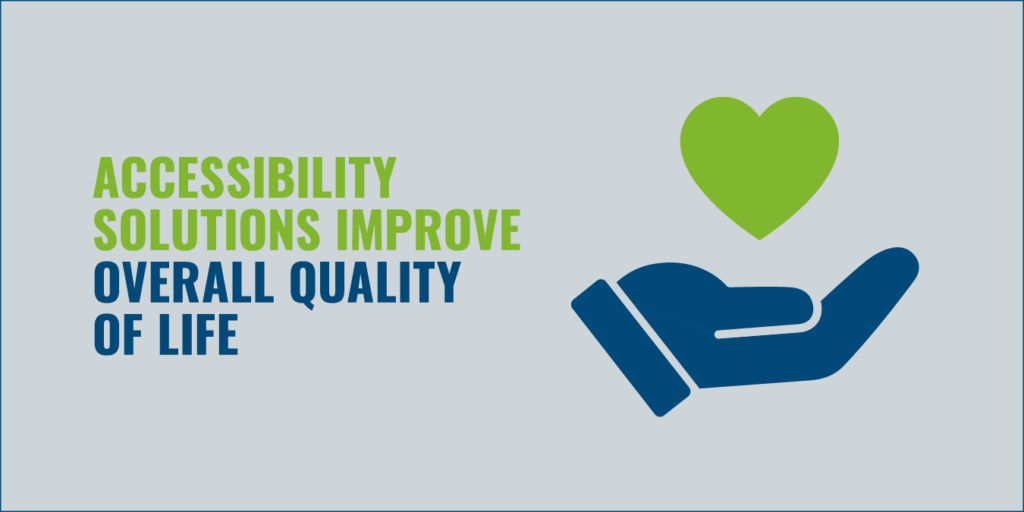
By addressing the physical and emotional challenges of caregiving, accessibility solutions ensure that caregivers can provide the highest possible care without compromising their own health and well-being. The importance of creating inclusive and safe environments is clear, not just for the physical benefits they provide, but for the peace of mind and independence they afford individuals with mobility challenges.
Planning for Accessibility: A Guide for Caregivers
Planning for accessibility is a critical step for caregivers looking to create a safe and supportive environment for those with mobility challenges. Whether you’re caring for a loved one at home or managing care in a facility, assessing the need for and implementing the right accessibility solutions can significantly improve the quality of life for those you assist. Here are some tips and insights on how to plan for an accessible environment.
Assessing the Need for Accessibility Solutions
- Conduct a Walk-Through Assessment: Start by conducting a thorough walk-through of the home or facility. Look for potential obstacles and areas that might present mobility challenges, such as stairs, narrow doorways, or high thresholds.
- Identify Key Areas for Improvement: Focus on key areas critical to daily activities, including bathrooms, bedrooms, kitchens, and entryways. These areas often require immediate attention to improve accessibility and safety.
- Consider the Individual’s Specific Needs: Tailor your accessibility plan to the individual’s specific mobility challenges and needs. The type of mobility aid they use (e.g., wheelchair, walker, or mobility scooter) will influence the solutions you choose.
- Prioritize Safety and Independence: Prioritize solutions that ensure safety and promote independence for the individual. Features like grab bars for showers, walk-in tubs, and stair lifts can make a significant difference in their ability to navigate their environment safely.
- Consult with Professionals: Engage with healthcare professionals, occupational therapists, or accessibility experts to get a comprehensive understanding of the individual’s needs and the most effective solutions.
Planning for accessibility is an essential step in creating a supportive environment for those with mobility challenges. By conducting a thorough assessment and prioritizing safety and independence, caregivers can make informed decisions about modifications.
Next Day Access can help, contact our team to learn more.
The Future of Caregiving and Accessibility
Caregiving and accessibility are rapidly evolving. This is driven by advancements in technology and a growing recognition of the need for inclusive, adaptable living environments. As we look to the future, several key trends are shaping the way care is provided. These trends are making it more efficient, responsive, and attuned to the individual needs of mobility challenges.
Trends in Caregiving and Accessibility
- Increasing Use of Technology and Smart Home Solutions: Technology integration into caregiving practices is becoming increasingly prevalent. Smart home technologies, such as voice-activated systems, automated lighting, and security features, are being used to create environments that are safer but also more empowering for individuals with disabilities or mobility issues. According to an AARP report, 77% of adults 50 and older want to stay in their homes for the long term. This is a desire that smart home technologies can support by enhancing home accessibility and safety.
- Telehealth and Remote Monitoring: The adoption of telehealth services and remote monitoring technologies is on the rise, offering caregivers and healthcare providers more convenient ways to stay connected with and monitor the well-being of those they care for. This trend is particularly beneficial in reducing in-person medical visits and making healthcare more accessible to those with mobility challenges.
- Wearable Health Devices: Wearable technologies that monitor health metrics are becoming essential tools for caregivers. These devices can track vital signs, detect falls, and even predict potential health issues. This allows for timely interventions and better health management.
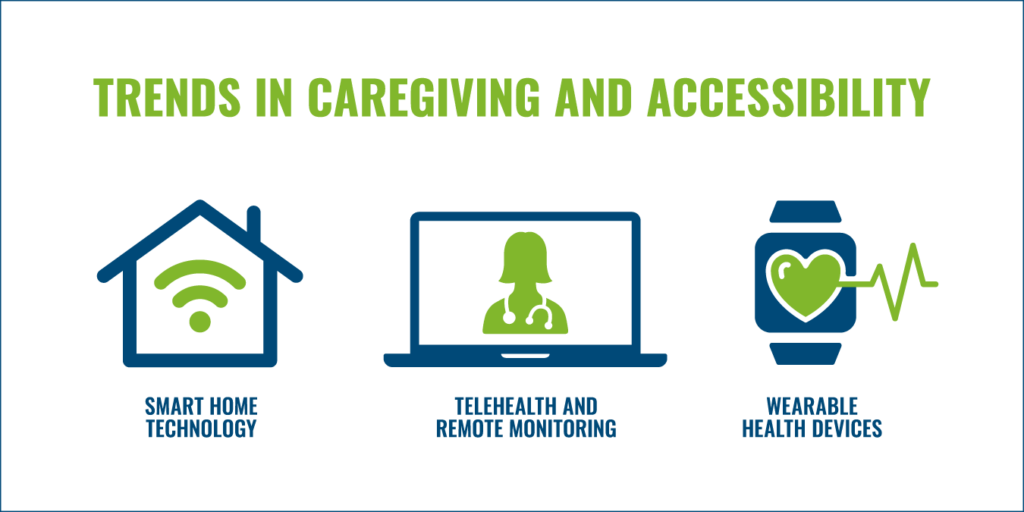
National Caregiver’s Day: Recognizing and Supporting Caregivers
National Caregiver’s Day serves as a heartfelt reminder of caregivers’ invaluable contributions to our society. It’s a day dedicated to appreciating the compassion, dedication, and hard work of those who provide care to individuals with disabilities, mobility challenges, or age-related issues. Here are ways individuals and communities can thank caregivers:
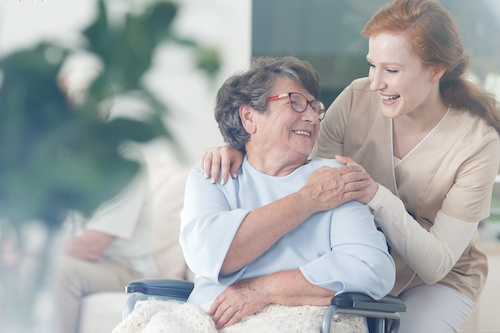
- Express Gratitude: A simple “thank you” can go a long way. Personalized notes, cards, or messages can make caregivers feel valued and appreciated.
- Offer Practical Help: Providing respite care, delivering meals, or assisting with errands can help caregivers.
- Public Recognition: Communities can organize events or awards to publicly acknowledge and celebrate local caregivers’ contributions.
- Educational Resources: Providing access to information and training can empower caregivers with the knowledge and skills they need to provide the highest quality care.
National Caregivers Day shines a light on the selflessness and dedication of caregivers, underscoring the significant impact of their work on our society. It’s a moment to acknowledge their contributions and explore supportive measures that can ease their responsibilities.
How Next Day Access Supports Caregivers
Next Day Access excels in delivering tailored accessibility solutions for individuals with mobility challenges, significantly aiding caregivers in their roles. Here’s a short checklist of how our team will support your customized accessibility plan creation.
- Free Home Assessment: Next Day Access offers free home assessments to evaluate the specific needs of the individual and the home’s layout. This assessment helps identify the most effective accessibility solutions.
- Customized Solution Planning: Based on the assessment, Next Day Access can develop a customized plan that addresses the identified needs. This could be installing ramps for easy entry and exit, deciding what type of stair lift is best suited for the home, or bathroom modifications to ensure safety and independence.
- Professional Installation: With a team of experienced professionals, Next Day Access ensures that all installations are completed efficiently and safely, adhering to the highest standards of quality and compliance.
- Ongoing Support: Beyond installation, Next Day Access provides ongoing support and maintenance to ensure that the accessibility solutions continue to meet the needs of the individual and caregiver effectively.
Contact Next Day Access and let’s work together to create accessible spaces that support caregivers and those they care for, making every day safer and more manageable.





